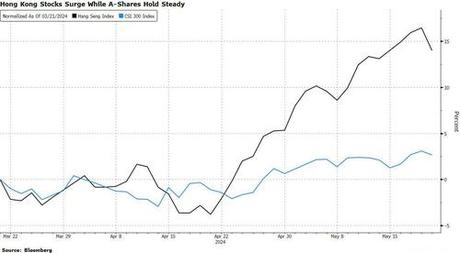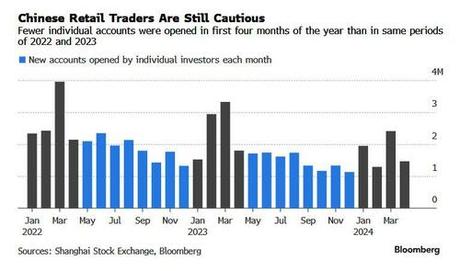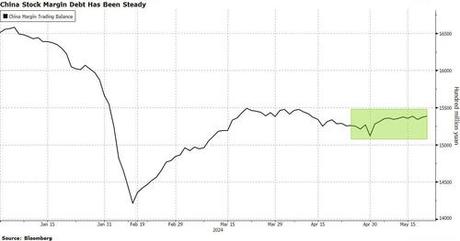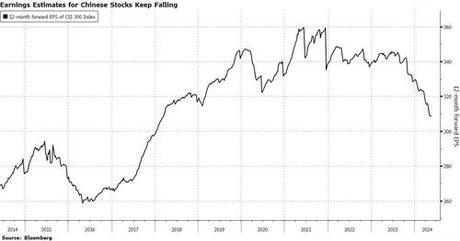Chinese stocks have rebounded yet local retail traders are still holding back. That's bad news for a rally that's looking increasingly stretched.
In Hong Kong, aggressive buying by foreign funds has lifted the Hang Seng Index by 18% since the close on April 19. Things, however, look much calmer onshore. The CSI 300 Index has climbed only 4% in that span, still short of a technical bull market.

One explanation for the stark underperformance of A shares is a lack of interest from mom-and-pop investors. Retail traders form the backbone of China's onshore market, holding 44% of free-float by the end of 2022, according to an estimate by CICC. They invest through 200 million accounts and are responsible for about 60% of overall trading activity.
Ordinary Chinese investors haven't piled in so far. Individuals opened about 7.1 million new accounts in the first four months of 2024 - down 26% versus the number opened in the same period last year - according to data provided by Shanghai Stock Exchange. Fewer than 1.5 million accounts were established in April, below the 12-month rolling average.

The outstanding value of margin debt on Chinese stock exchanges plunged during the market turmoil early this year, before picking up as markets reopened on Feb. 19 after Lunar New Year. The amount of debt has stalled over the past two months.
The stagnant margin balances and lackluster fund subscriptions suggest buying by locals is still missing in China's stock market, JPMorgan strategists including Rajiv Batra wrote in a report. After all, consumer confidence is still weak with the property market in the doldrums.

The strategists went on to argue that positioning is now a headwind for Chinese equities. Underweight positions from long-only funds are now much smaller than in recent years. The extent of short-covering and mainland investor purchases of Hong Kong shares via the Southbound Stock Connect program "look well advanced," they wrote. A potential re-allocation to India stocks, when that country's elections conclude early next month, could be another drag on China markets, they warned.
A long-awaited recovery in corporate earnings has yet to materialize. Analysts keep trimming earnings forecasts for components of both the CSI 300 and the MSCI China Index. As the earnings season nears its end, there are still more misses than beats in quarterly results.

Conditions for a rotation out of the favored Asian markets - including Japan - into China haven't been met, said Societe Generale strategist Frank Benzimra. " The earnings cycle has yet to turn in China, and the housing market has yet to stabilize."

